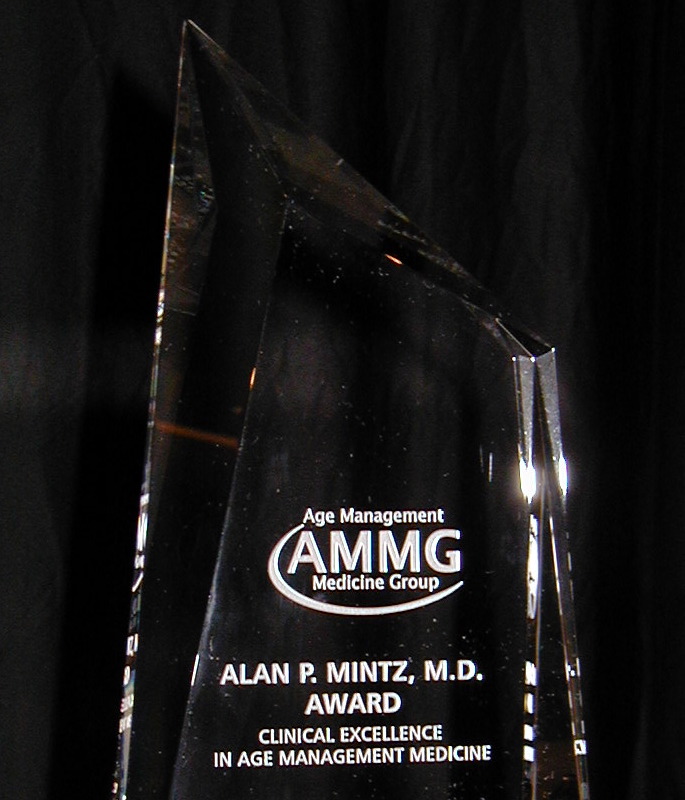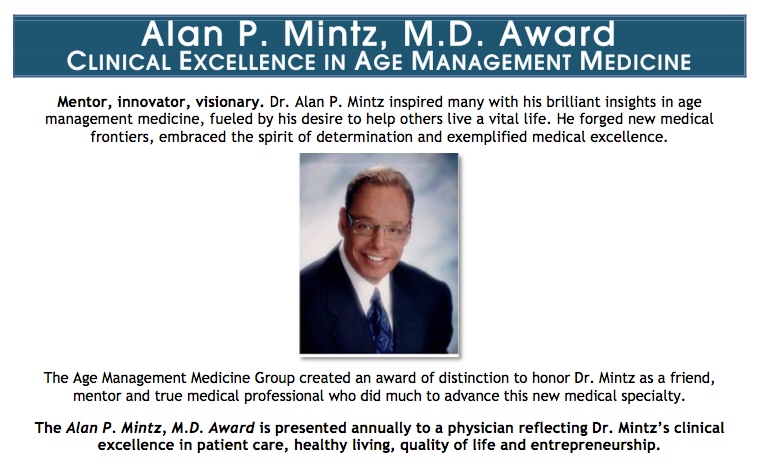
AMMG Presents 2015 Alan P. Mintz Award to Jeffrey P. Leake, M.D.
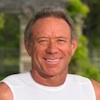
On Friday, November 6 at the 19th Clinical Applications for Age Management Medicine Conference in Las Vegas, Nevada, AMMG presented the 2015 Alan P. Mintz, M.D. Award for Clinical Excellence in Age Management Medicine to Jeffrey P. Leake, M.D.
This was the Ninth Annual presentation of the Alan P. Mintz, M.D. Award by the Age Management Medicine Group. AMMG created this award of distinction to honor Dr. Alan P. Mintz as a friend, mentor and true medical professional, who did much to advance this new medical specialty. The Alan P. Mintz, M.D. Award is presented annually to a physician reflecting Dr. Mintz’s clinical excellence in patient care, healthy living, quality of life and entrepreneurship. As a mentor, innovator, and visionary, Dr. Mintz inspired many with his brilliant insights into Age Management Medicine, fueled by his desire to help others live a vital life. He forged new medical frontiers, embraced the spirit of determination and exemplified medical excellence.
Jeffrey Park Leake, M.D., is a partner at Cenegenics Elite Health in Las Vegas, where he specializes in age management medicine. He also serves in the capacity of Course Director for Physician Training and Certification in Age Management Medicine for the Age Management Medicine Education Foundation.
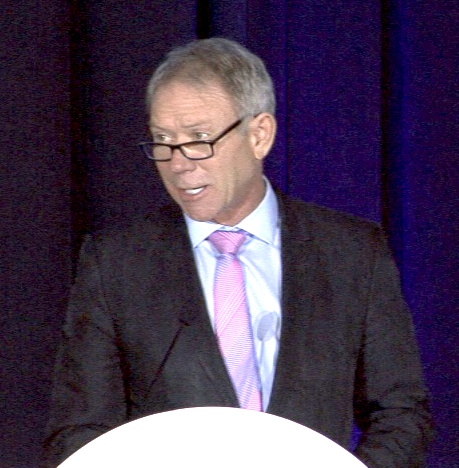
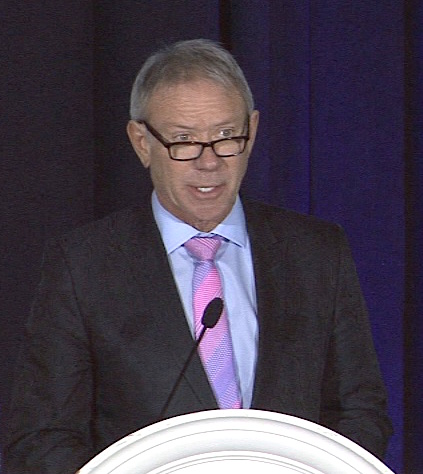
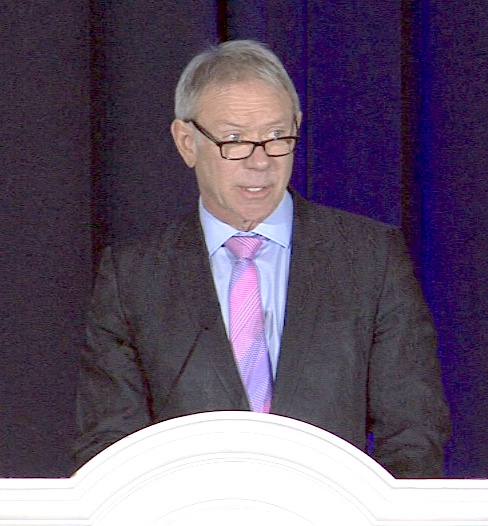
He completed his undergraduate degree at the Ohio State University with a major in molecular genetics. He went on to do research in oxalate metabolism in the Department of Physiological Chemistry at OSU and teach biochemistry to first-year medical students at the Ohio State University College of Medicine. He received his Doctor of Medicine at OSU, and entered an anesthesiology residency at the Ohio State University Hospitals, becoming chief resident and later accepting a faculty appointment as a clinical instructor in anesthesiology.
After completing his board certification in anesthesiology, he spent 27 years as a practicing anesthesiologist at Harrison Medical Center in Washington, becoming the first Director of Surgical Services there. In 2009, Dr. Leake transitioned from a career in anesthesiology to join Cenegenics as a clinical physician in age management. His interest in exercise and fitness developed naturally from his athletic career while at OSU, and he is certified by the International Sports Sciences Association as a personal trainer. His personal fitness regime includes weight training, plyometrics, yoga, sprint interval training and Krav Maga.
Dr. Leake is the author of a new 2-volume work, The Textbook of Age Management Medicine. It is the first texbook of its kind, presenting a comprehensive view of the essential information needed by those who would like to practice, or are practicing, this new medical specialty. "This was probably my final professional goal," said Dr. Leake of both volumes. "It’s something I’ve wanted to do. I thought there was an academic need to further our specialty. When I first came to the field I would have killed to have this at hand."
Dr. Leake is Course Director for the Training and Certification in Age Management Medicine offered jointly by the Age Management Medicine Education Foundation (AMMEF) and Age Management Medicine Group (AMMG). "One of the most frequent questions I’ve been asked over the years of training physicians, is 'Is there a textbook?' Now there finally is," he says. The two volumes cover nutrition, exercise and hormones. Dr. Leake says he's hoping to have it function as a desk reference, and that it could certainly serve as a textbook for the training course.
The certification program provides comprehensive and essential knowledge for a successful age management medicine practice. “The course is being continuously revised, literally on a weekly basis," says Beth Traylor, M.D., president of the board of AMMEF. "Dr. Leake modifies and updates continuously to include the latest research and developments. After students get their certification we provide all kinds of continuing educational opportunities for them, and Dr. Leake does an amazing job of maintaining communication with our graduates.” Dr. Leake confirmed that the course lends itself to that type of connection, which continues afterward. “I try to become a mentor to any doctor who goes through the training,” says Dr. Leake. “I still speak with and consult with doctors who’ve gone through 3-4 years ago. That’s an open-ended commitment, and it’s something that’s really unique. We will help them find a solution to a problem, even if only to get them directed to a solution. I really enjoy the ongoing relationships.”
Those who have been through the certification program confirm the ongoing nature of the relationship. Amy Proffer, M.D., of Amarillo, TX, told us, “I stay in touch with Dr. Leake regularly—he’s probably sick of me at this point—and if I have any questions I can tell that everybody involved is really supportive and really cares about developing the field of age management medicine and seeing that it grows.” “It was awesome that Dr. Leake said we had access to him all the time in the future,” agrees Delphine Shannon, M.D., of Gulfport, MS. “It’s nice to have a big network of doctors that are doing the same thing, because age management medicine is still cutting edge.” Even Paul Campion, M.D., who is now President of Cenegenics California, still relies on Dr. Leake: “If I have a question about exercise physiology I call Dr. Leake. He’s the ‘primo’ doctor—he knows the studies.”
Dr. Leake bases everything he does on evidence-based science, and says his first overall goal is to expose trainees “to as much of the literature that underpins what we do as possible. This is culled from my study of over 4,500 journal articles that serve as the basis of the training course.” Throughout his book, he says, there are between 3,200 and 4,000 literature references.
“What surprises a lot of the doctors is that age management medicine is so literature based,” notes Dr. Leake. “That’s a pleasant surprise to them. I can show them what the treatments are based on, and it’s not like we focus on only one treatment option; we go through multiple options. It’s not a matter of being best; things are different, one method is not necessarily better than another, and we try to tailor options to the individual patient. We talk about what all different groups say about best methods and why there is confusion, and try to stay away from dogma. The doctor doesn’t come away with a narrow point of view, they understand the pharmacology and physiology that underpins specific treatment approaches, and they can then choose what is best in an individual situation. They’re not following one recipe; they’re able to choose the best recipe for each patient. A lot of times at conferences a doctor may get up and say, ‘here’s what you do’ but that’s not necessarily the best approach for your patient.”
“It’s hard for doctors to know what is out there that is based on science," adds Dr. Leake. "There’s a lot of material out there that is just based on people who are making things up. You have to challenge; you have to ask ‘what’s it based on?’ You could hear someone who cherry-picks a few articles that support their position but there are hundreds of others that go against it. There is not a consensus opinion developed yet in this field; that will come eventually, but for now they need to have a solid understanding of what it’s based on. They need a good conceptual model with which to approach this medicine, so they can go out and build on a real solid foundation. And it is not built on a house of cards—it’s built on a real solid foundation.”
Much of what Dr. Leake teaches is based on fundamental science that is glossed over in medical school. “One thing in which there is a big deficit, I find,” says Dr. Leake, “is there isn’t a lot of talk about exercise and nutrition, which is really 80% of what makes the patient better. Students learn essentially everything a personal trainer would know about exercise. We teach how to conduct a needs analysis to determine the exercise prescription and how to adapt it over the course of a treatment program, including fitness training and aerobic training.”
Dr. Leake says he absolutely sees a wider audience for his book. "There’s a need for information on lifestyle, even separate from the hormones, there’s a real lack of emphasis in nutrition and exercise," he says. "We’ve let paraprofessionals take over that area, and lost emphasis on the most important thing doctors can do for their patients."
"I've written a patient companion book that will be available soon," says Dr. Leake. "I deliberately wrote it in a way that isn’t like 'nutrition, exercise and hormones for dummies'—in my practice there’s still a heavy emphasis on education, and I don’t try to dumb it down. When physicians dumb things down for patients, that’s a mistake."
Dr. Leake adds, “A lot of times a doctor comes in and asks how much testosterone to give somebody. They get that information, but they also get the foundation for how to make that decision. We really need people who are going out with an ability to understand why they’re doing what they’re doing, and make those determinations on their own. Those of us who speak at conferences or run a training course, have an obligation to help these doctors grow; we need to really take that responsibility to be educators seriously.”
“I still am a practitioner,” says Dr. Leake. “I still have a large clinical practice, I still do this hands on. I think it’s important that people who teach still know what they’re talking about with actual practice. There’s an unlimited amount of information.”
